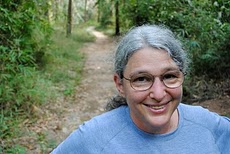Protecting Those Who Serve
-
-
slice.mit.edu
- 1
Filed Under
Recommended

Dr. Meryl Nass ’75 is a small-town doctor concerned with issues of national importance. She's an internist in Bar Harbor, Maine. At her clinic for complex disorders like chronic fatigue syndrome, fibromyalgia, and Gulf War Syndrome, she sees patients from all over the state plus some who come up from Massachusetts. But her voice is heard as far away as Washington.
Nass has testified before U.S. Congressional committees twice on Gulf War Syndrome and once on the potential dangers of the anthrax vaccine given to all soldiers who ship out; she’s prepared written testimonies for the record about the anthrax vaccine and the prevention of and response to bioterrorism. In 2008 Nass served as a consultant to the federal director of national intelligence on preventing domestic bioterrorism. She is now the chair of the Commission to Protect the Lives and Health of the Maine National Guard.
Nass, who majored in biology, traces her chutzpah at least as far back as her MIT days. Outside the classroom, she protested the Vietnam War. In the lab, she says, “We weren’t pushed into any mold. We were encouraged to think and to question.”
That’s exactly what she did when, in 1989, she was asked by her chapter of Physicians for Social Responsibility to look into some anthrax research going on at UMass Amherst. What she found piqued her interest in germ warfare. She went to the library at Harvard and read up on outbreaks from the 1800s. She thus became an expert in anthrax—and a national PSR spokesperson on biological warfare—just as the first Gulf War broke out, and was later in a unique position to weigh in on the 2001 mailing of anthrax-contaminated letters.
Nass wrote journal articles suggesting that we might not want to give the anthrax vaccine to millions of soldiers without a little more data on how safe it is. In 1995, a Congressional committee published a report that linked higher rates of Gulf War syndrome with the anthrax vaccine. “The Army didn’t pay attention,” she says, and vaccines remain mandatory. She has testified in the courts martial of soldiers and sailors who’d refused the vaccine. She still blogs about anthrax vaccine—and any other public health concerns that cross her mind--almost daily. “Some members of Congress have called for further investigation, but nothing’s happening,” she says.
More recently Nass, who says she is in no way anti-vaccine, has spoken out about the safety of the swine flu vaccine. She was gratified when the U.S. government bought shots without squalene, an additive she considers risky. Her biggest concern at the moment, however, is the epidemic of post-traumatic stress disorder and traumatic injuries in soldiers coming home from Iraq and Afghanistan. “They’re not necessarily getting any better,” Nass says. “The Army has good programs, but they’re not reaching enough people.”
One of Nass's two sons is also an alum; Jake Abernethy ’02 is a PhD candidate at Berkeley. She notes that her boys are related to Richard Cockburn Maclaurin—MIT's president from 1909 to 1920—through their dad.








Comments
Mark Camenzind
Sat, 08/22/2015 7:31pm
NIH has been grossly discriminatory by totally inadequate funding for Neuroimmune diseases, such as M.E./CFS, Myalgic Encephalomyelitis/Chronic Fatigue Syndrome, that may be similar to Gulf war syndrome. New organization have created an "A-team" to attack these diseases, but needs funding from NIH or Philanthropy to help cure 2 million afflicted with ME/CFS in USA, 20 million worldwide, and more if you include related diseases. See End-MECFS.org for more info